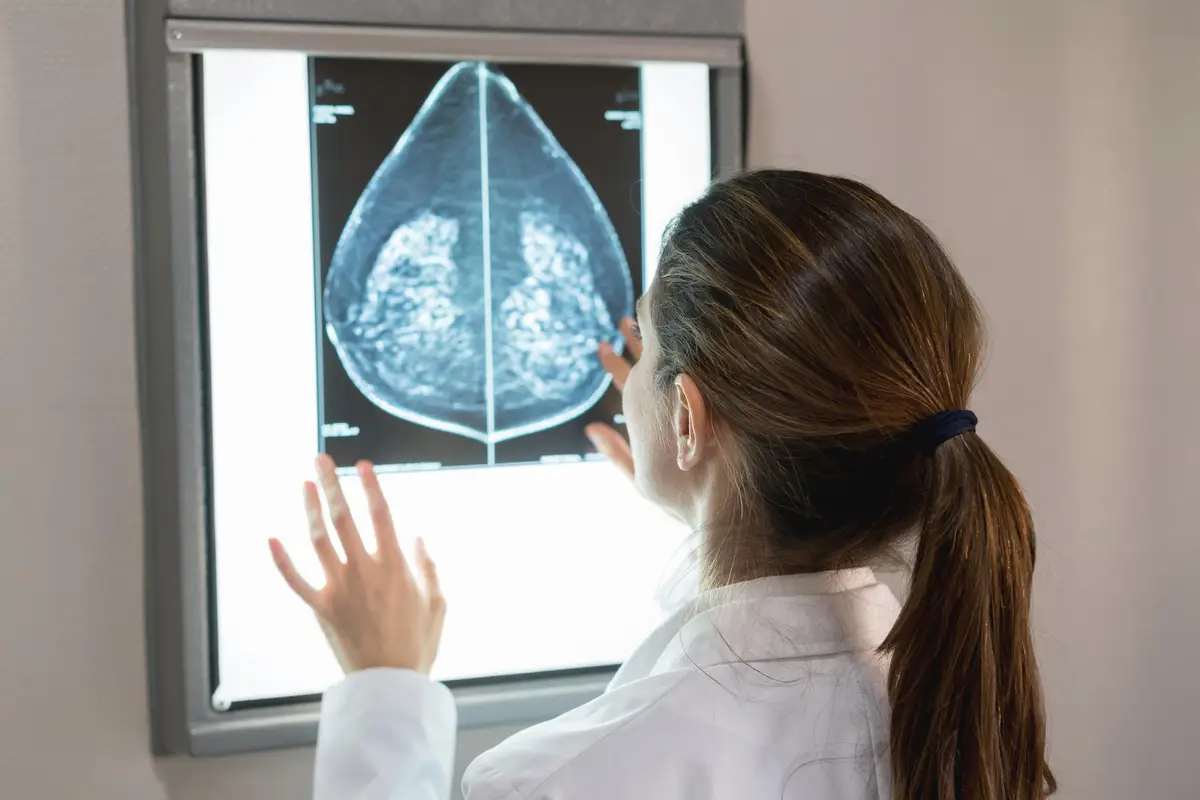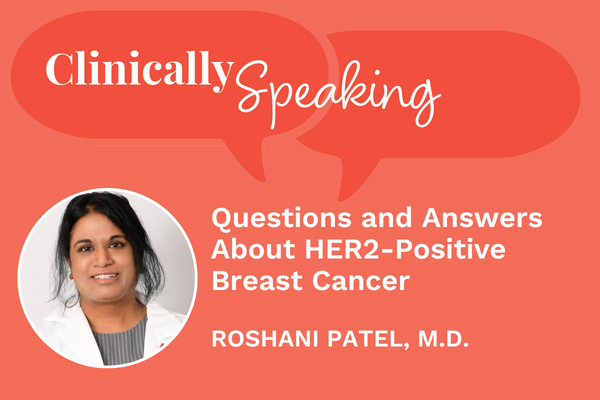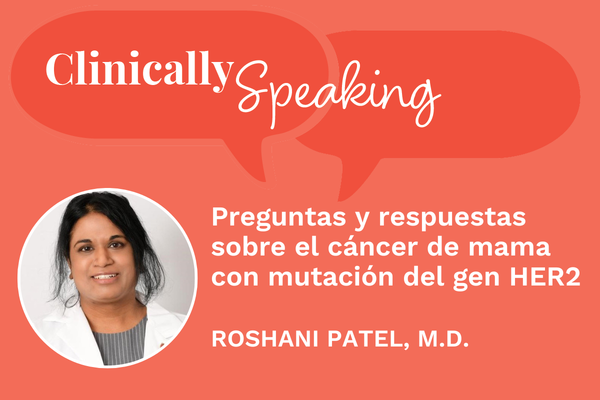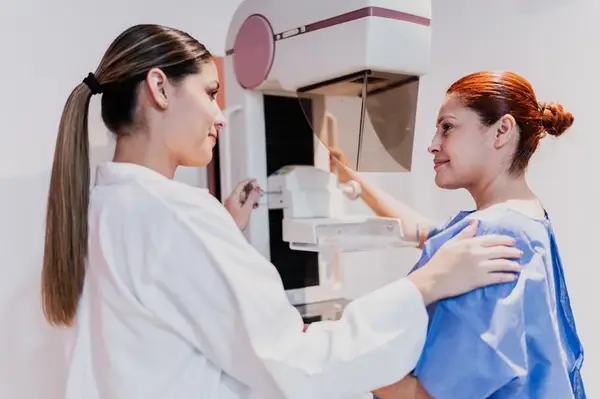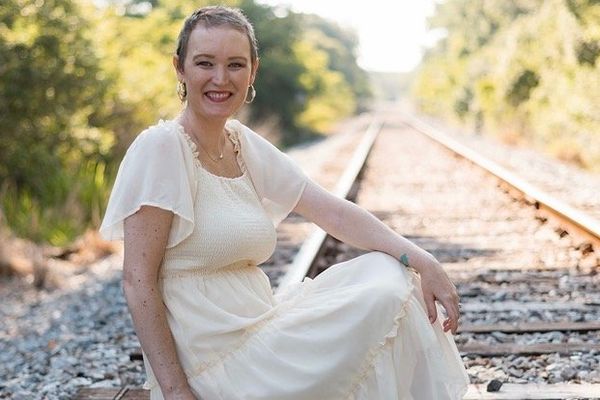Q:
I have large breasts and fibrocystic disease and have had fine needle aspiration. Could the dense tissue from the fibrocystic disease hide cancer in regular screening mammograms?
A:
First, let's talk about what fibrocystic disease is. The primary symptoms of fibrocystic disease are breast pain, cysts, and non-cancerous lumpiness. It affects about one in three women in the United States, primarily those in their 30s and 40s, and is thought to result from hormonal changes throughout your menstrual cycle. That's why fibrocystic disease tends to disappear after menopause. However, it may also become progressively worse the closer you are to menopause.
And yes, fibrocystic disease can make breast cancers more difficult to detect. You don't say how old you are, but since you're still having issues with fibrocystic breasts, I'll assume you're premenopausal and, since you're having mammograms, in your forties. You may already know that the issue of mammograms for women in their forties is somewhat controversial, in part because of the large number of women who must be screened to find one breast cancer; and because the denser breast tissue of women in this age group (particularly if you have large breasts) can make it more difficult to identify potentially cancerous tissue.
It's good that your health care professional is erring on the side of caution and performing fine needle aspiration for any questionable lumps. One thing you might want to do, especially if you already have an elevated risk for breast cancer, is talk to your health care professional about alternative screening methods. For instance, MRI screening has been found to be particularly beneficial in young women with a high genetic risk for breast cancer. Because this technique uses magnetic imaging instead of x-rays, dense breasts don't pose a problem. Studies find this method is better than either mammography or ultrasound, even both together, at finding tumors. However, it's less specific than mammograms, meaning that not everything it identifies as a tumor turns out to be a tumor. That results in unnecessary biopsies and lots of worry, something you're already familiar with.
Has your health care professional talked with you about treatments for your fibrocystic breasts? There is one medication approved for the treatment of fibrocystic breasts, danazol (Danocrine), a synthetic male hormone, but it's rarely used because the side effects outweigh the benefits for most women. Some women also find relief with low-dose oral contraceptives.
Additionally, there is some evidence that 400 IU of vitamin E may help; don't go above that dose, however. There is some evidence that reducing dietary fat intake may also relieve symptoms due to fibrocystic disease. There is also some thought that chemicals called methylxanthines, found in coffee and other caffeinated products, may contribute to fibrocystic disease, leading some health care professionals to recommend abstaining from caffeine, but there's very little hard evidence.
You can also talk to your health care professional about having the breast lumps, or fibroadenomas, removed. One recent study found good results in women who had the lumps removed during a minimally invasive office procedure called cryoablation, which freezes the lumps to destroy them.
My final advice? The risk of breast cancer in women in their 40s who do not have a genetic predisposition to the disease is very low. Continue getting your regular mammograms, have any suspicious lumps aspirated or biopsied, and if you find that your anxiety over this issue is becoming overwhelming, talk to your health care professional about an MRI of the breast and more advanced treatments.

